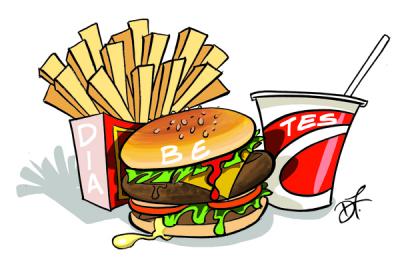Diabetes mellitus is one of the most difficult diseases to manage for any afflicted individual. We all have experienced the daily hassles faced by diabetics in our own families. The health statistics of Mauritius project a very gloomy picture. The percentage of adults under direct threat of diabetes is not only of urgent health concern but is also a serious handicap for our gross domestic product [GDP] as well as our gross domestic happiness [GDH].
Maharishi Charaka, an authority of Internal Ayurvedic medicine, describes causes and treatment of diabetes. The wrong dietary habits coupled with regimen contrary to our moral and human values are the main factors responsible for this disease. The management of this ailment through Ayurveda is very simple. The diabetic patient is classified into two categories,
1] The obese and overweight, where emesis and therapeutic purgation are prescribed to remove the accumulated toxins.
2] It happens that a diabetic patient is weak, lean and fragile; thus rejuvenating treatment is recommended.
Ayurveda also advises specific diet for each diabetic patient based on one’s psychosomatic body constitution which is determined through the pulse diagnosis. The ailing individual has a tailor-made diet that takes account his or her cultural and ethnic sensitivity. The principal ingredients that shall be included in a diabetic diet are: 1] barley, 2] bitter gourd, 3] Fenugreek. The physical activities prescribed are walking, swimming, running and yoga [under supervision only].
One must acknowledge the continuous effort put up by the health authorities to combat Diabetes. Why is there no substantial decrease in the percentage of diabetics since the last 25 years? The Mauritian is a person who is strongly attached to his cultural heritage. There has been a constant curtail and change in the practice of such ancestral cultural assets, may it be the way of thinking, cuisine or life style. This sudden and abrupt change has not been accepted by our genetic set-up. The body-mind complex is permanently in a tug-of-war situation. The body organs are subjected to undue stress which denatures the physiological functions resulting in non-communicable diseases like diabetes.
It is very sad and unfortunate to note that the health promotion campaign in Mauritius has ignored the relevance of cultural entity in the management of this disease. The diabetic patient shall be encouraged to:
1] adopt the traditional method of cooking, best suited to his or her cultural group. Nutritionists and physicians shall thoroughly explain to each individual the essence of such eating habits. We shall re-introduce the traditional food like ‘ satwa'[mixture of pulses and cereals] ‘Dall pitta’, Idli, and Kichri[mixture of rice and pulses] in our plates instead of the imported processed cereals mixture, which have a large amount of sugar, salt and chemical preservatives.
2] Our health policy-makers shall introduce the real concept of active community participation, which is two- way traffic. The top-down [physician to community] paternalistic approach is outdated now due to the advent of information technology. We must opt for more partnership relation model better known as the bottom-up concept where the knowledge flows upward from the community to the physician. The community shall be encouraged to voice out its opinions on the disease. Local health committees shall be set up to identify the causative agent of diabetes in that locality, formulate appropriate remedial solution and monitor the progress of such intervention programmes.
Diabetes is a disease that cannot be easily cured. It requires the harmonious participation of inhabitants, physicians, health policymakers, and the pharmaceutical industry. These four components shall work synergistically to induce the desired change. One of the best methods to effect this change is through the ADKAR [A= awareness, D= Desire, K = Knowledge, A=Ability, R= Reinforcement.] model for change management developed by Prosci in year 2000.
Tackling Diabetes
- Publicité -
EN CONTINU ↻



